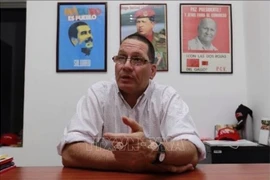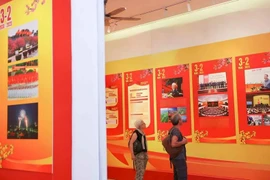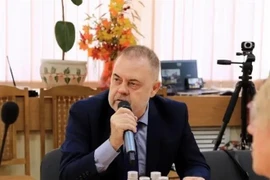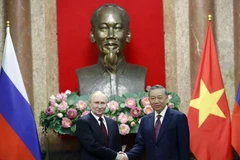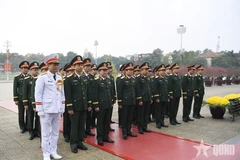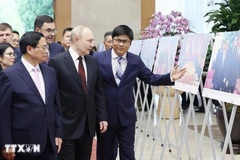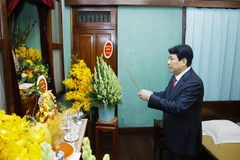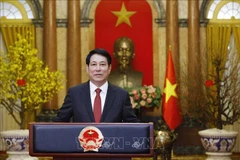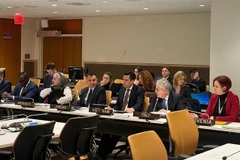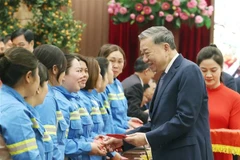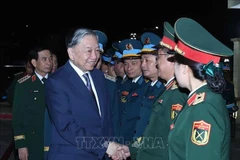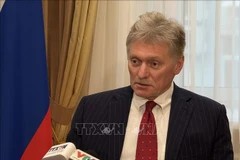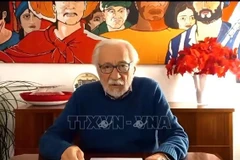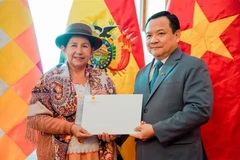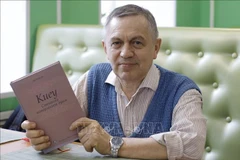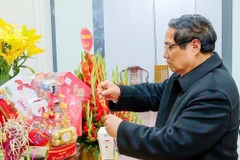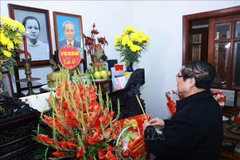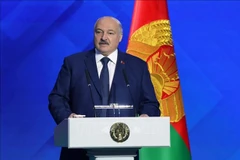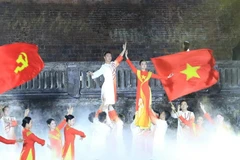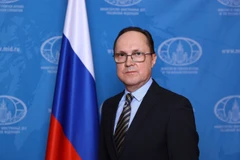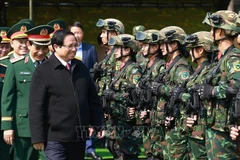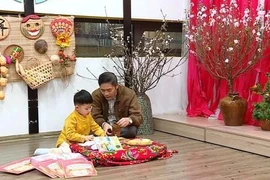Sydney (VNA) - The leadership of the Communist Party of Vietnam (CPV) has been evident throughout history – from guiding the national liberation movement to advancing socialism, to spearheading the country’s renewal and development today, stated Tran Ba Phuc, a member of the Vietnam Fatherland Front (VFF) Central Committee.
Phuc, who is also President of the Vietnam Business Association in Australia, and Vice President of the Vietnam Business Association, highlighted that Vietnam has made significant strides in economic, political, and social spheres under the Party’s leadership.
Despite numerous challenges, the CPV has consistently driven sustainable development, secured leadership in national reforms, and raised Vietnam’s global profile, he said.
After nearly 40 years of Doi Moi (renewal), the CPV has sharpened its focus on addressing corruption. Phuc pointed out that the Party has not only recognised the risks and damages of corruption but has made it a key issue for reform.
Vietnam’s anti-corruption campaign has been internationally recognised, helping improve the investment environment and build a rule-of-law state. These efforts have boosted investor confidence and allowed Vietnam to integrate more deeply into international organisations, establishing it as a reliable regional and global partner.
Phuc commended the CPV's efforts to streamline the administrative system as a crucial strategy to enhance governance, reduce waste, foster accountability, and build public trust, which is vital for accelerating Vietnam’s development and strengthening support from the overseas Vietnamese community.
Phuc noted that Vietnam is entering a new era of prosperity under the CPV’s leadership. He expressed his optimism that the Party’s clear vision will continue to drive the nation towards a stronger, more prosperous future.
Vietnam’s long-term goals include becoming a modern industrialised nation by 2030 and achieving high-income status by 2045. Achieving these ambitious targets requires groundbreaking policies in economics, science, technology, and human development. Vietnam is also focused on establishing an advanced “digital production model” where artificial intelligence and data become key resources for innovation.
In tandem with digital transformation, Vietnam is committed to green economic growth and sustainable development. This vision involves balancing economic progress with environmental stewardship and ensuring social equity. These initiatives are not just aspirations but practical strategies to position Vietnam as a rising global power, Phuc noted.
He emphasised the Party's effective leadership in driving national progress and meeting public expectations amid increasing global interconnectedness, noting that Vietnam’s strategic location, young workforce, and participation in key free trade agreements provide a strong foundation for achieving development goals, particularly through high-tech innovation and embracing the Fourth Industrial Revolution.
Despite these advantages, he held that challenges such as climate change, over-reliance on raw material exports, and regional disparities must be addressed for sustainable development.
He pointed to the need for improved state management efficiency and stressed that Vietnam’s ambitious goals are attainable, provided the CPV and the Government maintain coordinated leadership to overcome obstacles and secure the nation’s future as a modern, developed nation contributing to global stability.
The leader of the Vietnam Business Association in Australia also underscored the crucial role of the overseas Vietnamese community in promoting Vietnam’s image and economic growth.
Affirming his confidence in the Party’s leadership, Phuc underlined that the CPV brings hope for a prosperous future of Vietnam./.
